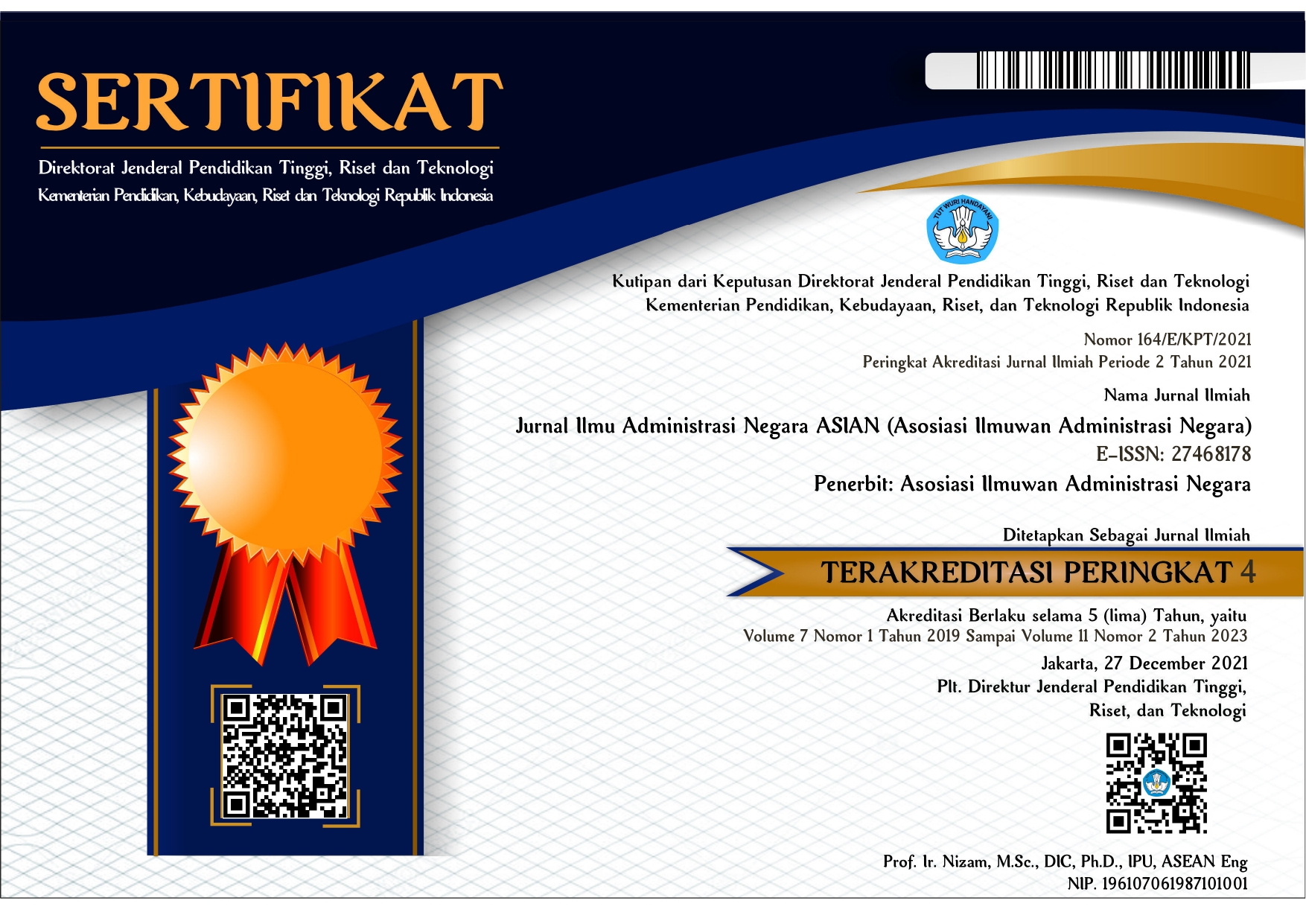Demokrasi dalam Krisis Partisipasi: Perlukah Membangun Pendidikan Kebijakan Publik dan Hukum untuk Generasi Muda?
 Abstract views: 518
,
Abstract views: 518
,
 PDF downloads: 1503
PDF downloads: 1503
Abstract
Indonesian democracy currently faces serious challenges in the aspect of meaningful public participation. Amid the availability of procedural participation space through elections and consultation forums, in reality public participation is often pseudo, people are involved symbolically without adequate understanding, access to information, or critical capacity. One of the main factors at the root of this problem is the lack of an inclusive, structured, and easily accessible public policy and legal education system for young people. In fact, Law Number 40 of 2009 concerning Youth firmly affirms the position of young people as strategic actors in national development, including their role as agents of social control in the process of formulating public policy. Policy and legal education is still concentrated in formal and professional academic environments, while the younger generation outside the lecture hall has minimal access to learn and be involved in the legislative process and public policy. With an exploratory-conceptual approach based on secondary data and scientific literature, this study reflects the urgency of inclusive policy literacy as a foundation for substantive participation. The findings and analysis in this study are expected to contribute to the development of alternative educational designs that bridge politics, public administration, and law, as well as being an initial reference for policy makers and education administrators in strengthening participatory democratic governance in Indonesia.
Downloads
References
Arnstein, S. R. (1969). A Ladder of Citizen Participation. Journal of the American Institute of Planners, 35(4), 216–224. https://doi.org/10.1080/01944366908977225
Delors, J., et al. (1996). Learning: The treasure within – Report to UNESCO of the International Commission on Education for the Twenty-first Century. Paris: UNESCO Publishing.
Dewey, J. (1916). Democracy and education. New York: Macmillan.
Habermas, J. (1996). Between facts and norms: Contributions to a discourse theory of law and democracy. Cambridge (MA): MIT Press.
Hess, D. E., & McAvoy, P. (2014). The Political Classroom: Evidence and Ethics in Democratic Education. Routledge.
Inter-Parliamentary Union. (2015). Public Participation for Democracy. International Day of Democracy. Retrieved from https://archive.ipu.org/dem-e/idd/2015-participation.htm
Kriesi, H., Lavenex, S., Esser, F., Matthes, J., Bühlmann, M., & Bochsler, D. (2013). Democracy in the Age of Globalization and Mediatization (1st ed.). London: PALGRAVE MACMILLAN.
Lasswell, H. D., & Lerner, D. (1951). The policy orientation. In Communication Researchers and Policy-Making (pp. 85–102).
Mahendra, Y. I. (2021). Paradoks Demokrasi di Indonesia Tahun 2014–2019: Analisis Prosedural dan Substansial. Paradigma: Jurnal Ilmu Sosial dan Ilmu Politik, 4(1). https://doi.org/10.23969/paradigmapolistaat.v4i1.2214
Open Parliament Indonesia. (2021, Juli 21). Fiksi Hukum. Retrieved from https://openparliament.id/glossary/fiksi-hukum/
Rahardjo, S. (2014). Ilmu hukum (8th ed.). Bandung: Citra Aditya Bakti.
Susanti, B. (2025, April 17). Wakil Rakyat atau Wakil Siapa? Kompas.id. https://kompas.id/artikel/wakil-rakyat-atau-wakil-siapa
Copyright (c) 2025 Jurnal Ilmu Administrasi Negara AsIAN (Asosiasi Ilmuwan Administrasi Negara)

This work is licensed under a Creative Commons Attribution-ShareAlike 4.0 International License.
Authors who publish with this journal agree to the following terms:
1. Copyright on any article is retained by the author(s).
2. The author grants the journal, right of first publication with the work simultaneously licensed under a Creative Commons Attribution License that allows others to share the work with an acknowledgment of the work’s authorship and initial publication in this journal.
3. Authors are able to enter into separate, additional contractual arrangements for the non-exclusive distribution of the journal’s published version of the work (e.g., post it to an institutional repository or publish it in a book), with an acknowledgment of its initial publication in this journal.
4. Authors are permitted and encouraged to post their work online (e.g., in institutional repositories or on their website) prior to and during the submission process, as it can lead to productive exchanges, as well as earlier and greater citation of published work.
5. The article and any associated published material is distributed under the Creative Commons Attribution-ShareAlike 4.0 International License








